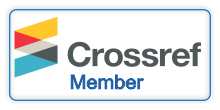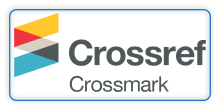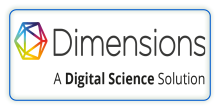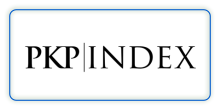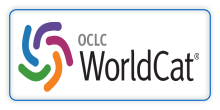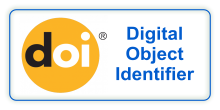IMPACT OF EMOTIONAL INTELLIGENCE ON PROJECT MANAGER’S COMPETENCY
DOI:
https://doi.org/10.29121/ijoest.v7.i3.2023.501Keywords:
Emotional Intelligence, Competency, Project ManagementAbstract
There is increased awareness about the factors that affect project success since project stakeholders are constantly working towards a successful project. Although there are many aspects that affect a project's success, project managers are essential. The purpose of this study is to investigate how emotional intelligence (EI) affects project managers' ability to manage projects effectively. Research has been done in fields of relation between emotional intelligence and project success, but influence of emotional intelligence on project manager’s competency in the field is unknown. In this study linear regression is applied to determine the inter relation between emotional intelligence and competency of a project manager. The practical application of linear regression was demonstrated and conclusions were drawn from the findings of the study. The inter-relations between emotional intelligence and competency of project managers are determined along with the degree of dependency. It is important to understand the dependency of competency on soft skills to enhance a project manager’s performance and thus the project’s success.
Downloads
References
Acosta-Prado, J. C., & Zárate Torres, R. A. (2019). Validation of the Wong and Law Emotional Intelligence Scale for Chilean Managers. Suma Psicológica, 26(2), 110–118. https://doi.org/10.14349/sumapsi.2019.v26.n2.7
Acosta-Prado, J. C., & Zárate, R. A. (2017). Emotional intelligence in Latin American Managers: An Exploratory Study. Universitas Psychologica, 14, 1–11. https://doi.org/10.11144/javeriana.upsy16-3.eila
Acosta-Prado, J. C., Zárate-Torres, R. A., & Tafur-Mendoza, A. A. (2022). Psychometric Properties of the Wong and Law Emotional Intelligence Scale in a Colombian Manager Sample. Journal of Intelligence, 10(2). https://doi.org/10.3390/jintelligence10020029
Ashkanasy, N. M., & Dorris, A. D. (2017). Emotions in the Workplace. Annual Review of Organizational Psychology and Organizational Behavior, 4(1), 67–90. https://doi.org/10.1146/annurev-orgpsych-032516-113231
Brière, S., Proulx, D., Flores, O. N., & Laporte, M. (2015). Competencies of Project Managers in International NGOs: Perceptions of Practitioners. International Journal of Project Management, 33(1), 116–125. https://doi.org/10.1016/j.ijproman.2014.04.010
Conte, J. M., & Dean, M. A. (2006). Can Emotional Intelligence be Measured? In K. R. Murphy (Ed.), A Critique of Emotional Intelligence: What are the Problems and How can they be Fixed? Routledge, 59–78 https://www.taylorfrancis.com/chapters/edit/10.4324/9781315820927-10/emotional-intelligence-measured-jeffrey-conte-michelle-dean
D. Goleman, R. Boyatzis & A. McKee (Eds.), Primal Leadership: Unleashing the Power of Emotional Intelligence, 103–117. Harvard Business School Press.Saklofske, D.H. and Parker, J.D.A. (Eds), Assessing Emotional Intelligence: Theory, Research, and Applications, Springer, New York, NY, 103-117. https://doi.org/10.1007/978-0-387-88370-0_6
Ekrot, B., Kock, A., & Gemünden, H. G. (2016). Retaining Project Management Competence—Antecedents and Consequences. International Journal of Project Management, 34(2), 145–157. https://doi.org/10.1016/j.ijproman.2015.10.010
Extremera Pacheco, N., Rey, L., & Sánchez-Álvarez, N. (2019). Validation of the Spanish Version of the Wong Law Emotional Intelligence Scale (WLEIS-S). Psicothema, 31(1), 94–100. https://doi.org/10.7334/psicothema2018.147
Gallagher, E. C., Mazur, A. K., & Ashkanasy, N. M. (2015). Rallying the Troops or Beating the Horses? How Project-Related Demands can Lead to Either High-Performance or Abusive Supervision. Project Management Journal, 46(3), 10–24. https://doi.org/10.1002/pmj.21500
Greenidge, D., Devonish, D., & Alleyne, P. (2014). The Relationship Between Ability-Based Emotional Intelligence and Contextual Performance and Counter Productive Work Behaviors: A Test of the Mediating Effects of Job Satisfaction. Human Performance, 27(3), 225–242. https://doi.org/10.1080/08959285.2014.913591
Huang, L. C., Ahlstrom, D., Lee, A. Y. P., Chen, S. Y., & Hsieh, M. J. (2016). High Performance Work Systems, Employee Well-Being, and Job Involvement: An Empirical Study. Personnel Review, 45(2), 296–314. https://doi.org/10.1108/PR-09-2014-0201
Kaufmann, L., & Wagner, C. M. (2017). Affective Diversity and Emotional Intelligence in Cross-Functional Sourcing Teams. Journal of Purchasing and Supply Management, 23(1), 5–16. https://doi.org/10.1016/j.pursup.2016.07.004
Khlaifat, D. M., Alyagoub, R. E., Sweis, R. J., & Sweis, G. J. (2019). Factors Leading to Construction Projects’ Failure in JORDON. International Journal of Construction Management, 19(1), 65–78. https://doi.org/10.1080/15623599.2017.1382092
Khosravi, P., Rezvani, A., & Ashkanasy, N. M. (2020). Emotional Intelligence: A Preventive Strategy to Manage Destructive Influence of Conflict In Large Scale Projects. International Journal of Project Management, 38(1), 36–46. https://doi.org/10.1016/j.ijproman.2019.11.001
Kirchoff, J. F., Omar, A., & Fugate, B. S. (2016). A Behavioral Theory of Sustainable Supply Chain Management Decision Making in Non-Exemplar Firms. Journal of Supply Chain Management, 52(1), 41–65. https://doi.org/10.1111/jscm.12098
Lindsjørn, Y., Sjøberg, D. I. K., Dingsøyr, T., Bergersen, G. R., & Dybå, T. (2016). Teamwork Quality and Project Success in Software Development: A Survey of Agile Development Teams. Journal of Systems and Software, 122, 274–286. https://doi.org/10.1016/j.jss.2016.09.028
Loufrani-Fedida, S., & Missonier, S. (2015). The Project Manager cannot be a Hero Anymore! understanding Critical Competencies in Projectbased Organizations from a Multilevel Approach. International Journal of Project Management, 33(6), 1220–1235. https://doi.org/10.1016/j.ijproman.2015.02.010
Maqbool, R., Sudong, Y., Manzoor, N., & Rashid, Y. (2017). The Impact of Emotional Intelligence, Project Managers’ Competencies, and Transformational Leadership on Project Success: An Empirical Perspective. Project Management Journal, 48(3), 58–75. https://doi.org/10.1177/875697281704800304
Maqbool, R., Sudong, Y., Manzoor, N., & Rashid, Y. (2017). The Impact of Emotional Intelligence, Project Managers’ Competencies, and Transformational Leadership on Project Success: An Empirical Perspective. Project Management Journal, 48(3), 58–75. https://doi.org/10.1177/875697281704800304
Mayer, J. D., Caruso, D. R., & Salovey, P. (2016). The Ability Model of Emotional Intelligence: Principles and Updates. Emotion Review, 8(4), 290–300. https://doi.org/10.1177/1754073916639667
Meng, X., & Boyd, P. (2017). The Role of the Project Manager in Relationship Management. International Journal of Project Management, 35(5), 717–728. https://doi.org/10.1016/j.ijproman.2017.03.001
Mikolajczak, M., Luminet, O., Leroy, C., & Roy, E. (2007). Psychometric Properties of the Trait Emotional Intelligence Questionnaire: Factor Structure, Reliability, Construct, and Incremental Validity in a French-Speaking Population. Journal of Personality Assessment, 88(3), 338–353. https://doi.org/10.1080/00223890701333431
Palmer, B. R., Stough, C., Harmer, R., & Gignac, G. (2009). The Genos Emotional Intelligence Inventory: A Measure Designed Specifically for Workplace Applications, 103–117. https://link.springer.com/chapter/10.1007/978-0-387-88370-0_6
Rezvani, A., Ashkanasy, N., & Khosravi, P. (2020). Key Attitudes: Unlocking the Relationships Between Emotional Intelligence and Performance in Construction Projects. Journal of Construction Engineering and Management, 146(4), 04020025. https://doi.org/10.1061/(ASCE)CO.1943-7862.0001803
Rezvani, A., Ashkanasy, N., & Khosravi, P. (2020). Key Attitudes: Unlocking the Relationships Between Emotional Intelligence and Performance in Construction Projects. Journal of Construction Engineering and Management, 146(4), 04020025. https://doi.org/10.1061/(ASCE)CO.1943-7862.0001803
Rezvani, A., Chang, A., Wiewiora, A., Ashkanasy, N. M., Jordan, P. J., & Zolin, R. (2016). Manager Emotional Intelligence and Project Success: The Mediating Role of Job Satisfaction and Trust. International Journal of Project Management, 34(7), 1112–1122. https://doi.org/10.1016/j.ijproman.2016.05.012
Rezvani, A., Chang, A., Wiewiora, A., Ashkanasy, N. M., Jordan, P. J., & Zolin, R. (2016). Manager Emotional Intelligence and Project Success: The Mediating Role of Job Satisfaction and Trust. International Journal of Project Management, 34(7), 1112–1122. https://doi.org/10.1016/j.ijproman.2016.05.012
Rezvani, A., Khosravi, P., & Ashkanasy, N. M. (2018). Examining the Interdependencies Among Emotional Intelligence, Trust, and Performance in Infrastructure Projects: A Multilevel Study. International Journal of Project Management, 36(8), 1034–1046. https://doi.org/10.1016/j.ijproman.2018.08.002
Rezvani, A., Khosravi, P., & Ashkanasy, N. M. (2018). Examining the Interdependencies Among Emotional Intelligence, Trust, and Performance in Infrastructure Projects: A Multilevel Study. International Journal of Project Management, 36(8), 1034–1046. https://doi.org/10.1016/j.ijproman.2018.08.002
Rezvani, A., Khosravi, P., & Ashkanasy, N. M. (2018). Examining the Interdependencies Among Emotional Intelligence, Trust, and Performance in Infrastructure Projects: A Multilevel Study. International Journal of Project Management, 36(8), 1034–1046. https://doi.org/10.1016/j.ijproman.2018.08.002
Salovey, P., & Mayer, J. D. (1990). Emotional Intelligence. Imagination, Cognition and Personality, 9(3), 185–211. https://doi.org/10.2190/DUGG-P24E-52WK-6CDG
Stanczyk, A., Foerstl, K., Busse, C., & Blome, C. (2015). Global Sourcing Decision-Making Processes: Politics, Intuition, and Procedural Rationality. Journal of Business Logistics, 36(2), 160–181. https://doi.org/10.1111/jbl.12090
Stephens, J. P., & Carmeli, A. (2016). The Positive Effect of Expressing Negative Emotions on Knowledge Creation Capability and Performance of Project Teams. International Journal of Project Management, 34(5), 862–873. https://doi.org/10.1016/j.ijproman.2016.03.003
Stephens, J. P., & Carmeli, A. (2016). The Positive Effect of Expressing Negative Emotions on Knowledge Creation Capability and Performance of Project Teams. International Journal of Project Management, 34(5), 862–873. https://doi.org/10.1016/j.ijproman.2016.03.003
Sunindijo, R. Y. (2015). Project Manager Skills for Improving Project Performance. International Journal of Business Performance Management, 16(1), 67–83. https://doi.org/10.1504/IJBPM.2015.066041
Urda, J., & Loch, C. H. (2013). Social Preferences and Emotions as Regulators of Behavior in Processes. Journal of Operations Management, 31(1–2), 6–23. https://doi.org/10.1016/j.jom.2012.11.007
Whitman, D. S., Rooy, D. L., Viswesvaran, C., & Alonso, A. (2008). The Susceptibility of a Mixed Model Measure of Emotional Intelligence to Faking: A Solomon Four-Group Design. Psychology Science, 50(1), 44–63. https://www.researchgate.net/profile/David-Van-Rooy/publication/26514569_The_susceptibility_of_a_mixed_model_measure_of_emotional_intelligence_to_faking_a_Solomon_four-group_design/links/0c960539a49b6f0398000000/The-susceptibility-of-a-mixed-model-measure-of-emotional-intelligence-to-faking-a-Solomon-four-group-design.pdf
Wong, C., & Law, K. S. (2002). The Effects of Leader and Follower Emotional Intelligence on Performance and Attitude. Leadership Quarterly, 13(3), 243–274. https://doi.org/10.1016/S1048-9843(02)00099-1
Wu, G., Zhao, X., & Zuo, J. (2017). Relationship Between Project’s Added Value and the Trust-Conflict Interaction Among Project Teams. Journal of Management in Engineering, 33(4), 04017011. https://doi.org/10.1061/(ASCE)ME.1943-5479.0000525
Wu, G., Zhao, X., & Zuo, J. (2017). Relationship Between Project’s Added Value and the Trust-Conflict Interaction Among Project Teams. Journal of Management in Engineering, 33(4), 04017011. https://doi.org/10.1061/(ASCE)ME.1943-5479.0000525
Published
How to Cite
Issue
Section
License
Copyright (c) 2023 Dr. Kranti Kumar Myneni, A Amrutha

This work is licensed under a Creative Commons Attribution 4.0 International License.












